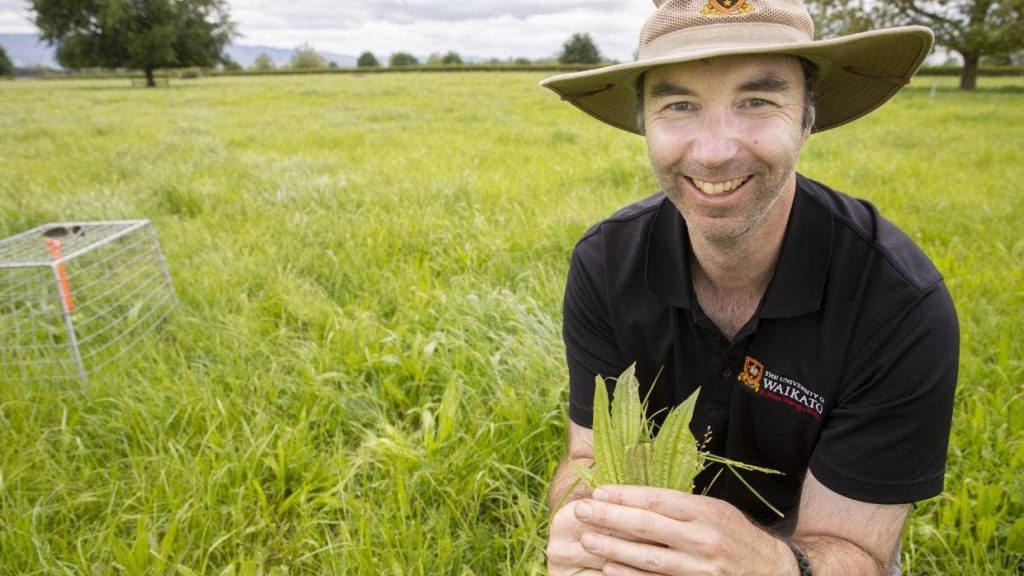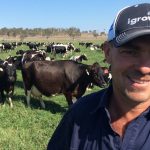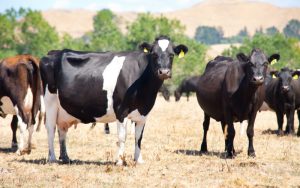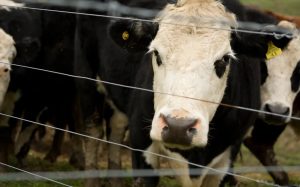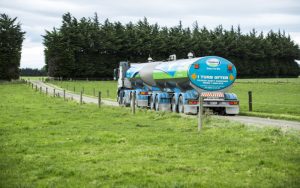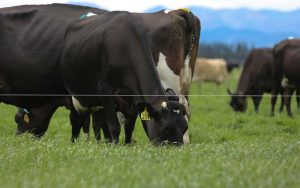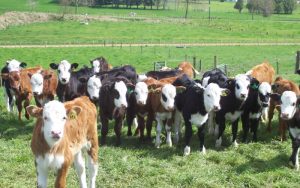
The University of Waikato is near the end of a two-year pasture trial study, growing Ecotain, in a 2.5 hectare paddock on Ben and Sarah Troughton’s family dairy farm near Waharoa.
Ecotain was marketed by seed company Agricom and was a cultivar of plantain, a plant commonly found in lawns and gardens, where nitrogen behaved differently compared to other pasture grasses.
University of Waikato research officer Aaron Wall said cows eating plantain produced urine with lower levels of nitrogen, in turn, lowering the level of nitrous oxide, a harmful greenhouse gas, released to the atmosphere.
Farmers were already trialling plantain in pastures to reduce nitrogen leaching into waterways.
But Wall said the university study, funded by the New Zealand Agricultural Greenhouse Gas Research Centre, would test plantain’s ability to reduce agricultural greenhouse gas emissions, especially nitrous oxide.
Wall said nitrous oxide was a naturally occurring gas.
But farming animals in concentrated areas was “overloading soil systems” with nitrogen, which through nitrification and denitrification, produced higher levels of nitrous oxide.
At the Troughton farm, Wall and research fellow Jordan Goodrich point out the plantain growing in the study paddock, planted in 2018.
It was sowed with a mixture of ryegrass and clover and the paddock was grazed like any other paddock on the farm.
There were cages dotted around the paddock and every month the contents were clipped, to take back to the university to sort and study. The cages were then moved around the paddock for the next month.
The aim was to see how well plantain was growing among its neighbouring grass varieties.
“We were hoping for 30 per cent but at the moment it is a lot less. One of the problems with plantain is that it gets outcompeted by other grasses,” Wall said.
Research equipment based between the trial paddock and a control paddock, was able to measure the exchange of gases in the air, including carbon dioxide, nitrous oxide and methane.
“It takes samples 10 times per second and we can take chunks of that data to look at a particular time of the year.
“But what we want is a number for the whole year, to say we released this amount of nitrous oxide into the air, or we have taken this amount of carbon dioxide out of the air.”
Wall said the Troughtons had been keeping an eye on the cows’ performance and eating preference in the test paddock.
“They described it as a salad bar. When the cows come into this paddock, they’ll be a bit more selective, so pick the bits they like and when there is less choice, they will eat anything.”
Plantain had the added benefit of a single, large tap root which went further into the ground to source water, making it a hardy survivor during dry summer periods.
“We know plantain is resilient to drought which means it can keep growing and take up carbon.”
Wall said an open day would be held in 2022 to share results with farmers.
The results would also be published in a peer-reviewed journal and presented at conferences.
It would also be shared on the AgMatters website, hosted by the New Zealand Agricultural Greenhouse Gas Research Centre.
Wall said the research on plantain was just one of many projects based at the Troughton farm in almost a decade, aimed at introducing diversification and more environmentally sustainable farm systems.
